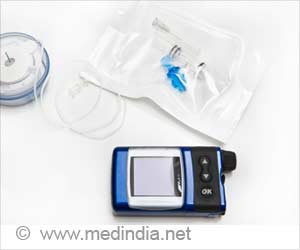The drug, Pioglitazone, which is used to treat type 2 diabetes can increas the risk of bladder cancer, a recent study has revealed.

No increased risk was seen for a similar drug (rosiglitazone).
Pioglitazone and rosiglitazone belong to a class of drugs called thiazolidinediones that help to control blood sugar levels in patients with type 2 diabetes. Both drugs are known to increase the risk of heart failure but, after carrying out a safety review, the European Medicines Agency decided to keep pioglitazone on the market.
However, there is now some evidence suggesting that pioglitazone may be associated with an increased risk of bladder cancer.
So a team of researchers based in Canada set out to determine if the use of pioglitazone was associated with an increased risk of bladder cancer in people with type 2 diabetes.
Using data from the General Practice Research Database (GPRD), which contains anonymised patient records from more than 600 UK general practices, they studied 115,727 patients newly treated with diabetes drugs from 1988 to 2009. Cases of bladder cancer were identified and matched to up to 20 healthy control patients.
Advertisement
The analysis involved 376 cases, matched to 6,699 controls.
Advertisement
These findings remained consistent in several further analyses designed to check the results.
The authors conclude that their results "provide evidence that pioglitazone is associated with an increased risk of bladder cancer, whereas no increased risk was observed with the thiazolidinedione rosiglitazone."
They suggest that such associations may have been underestimated in previous observational studies and say doctors, patients and regulatory agencies "should be aware of this association when assessing the overall risks and benefits of this therapy."
In an accompanying editorial, Dominique Hillaire-Buys and Jean-Luc Faillie from the Department of Medical Pharmacology and Toxicology in Montpellier, France say "it can confidently be assumed that pioglitazone increases the risk of bladder cancer. It also seems that this association could have been predicted earlier."
Considering that the benefit of pioglitazone in reducing cardiovascular events is questionable, they suggest that "prescribers who are ultimately responsible for therapeutic choices can legitimately question whether the benefit-risk ratio of pioglitazone is still acceptable for their patients with diabetes."
Source-Eurekalert














